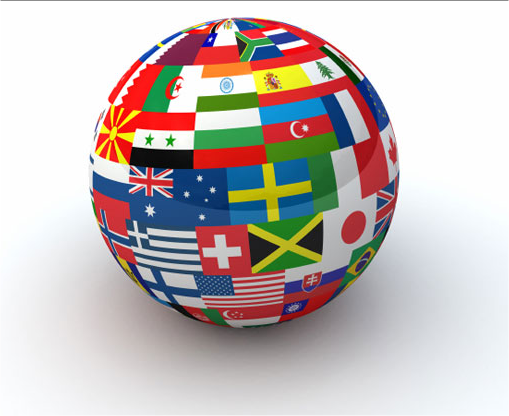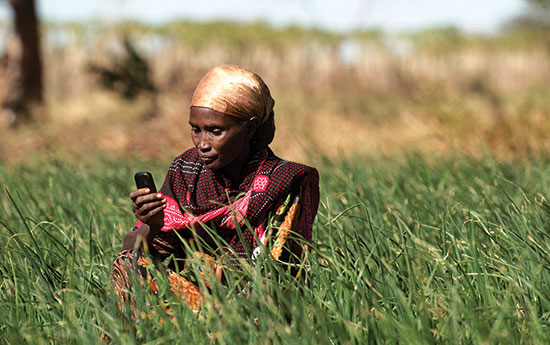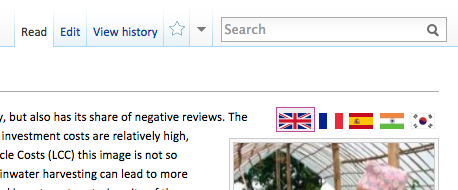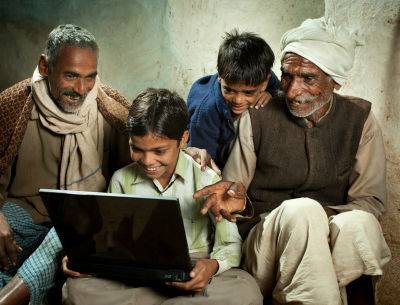Difference between revisions of "Translations"
| Line 10: | Line 10: | ||
While we accept individuals with translation experience (or students in a translation program) to add newly translated pages to Akvopedia, we have been fortunate to establish a translation program with some university programs worldwide. This way, their students get college credit for doing the translations, and Akvopedia gets pages that have been proofread by not just another individual, but by a team of aspiring translators, improving the quality of translation. In addition, the universities continue to offer their courses each year, which means we get consistent help, and notifications if an English page is updated and needs that integrated into the translated versions too. | While we accept individuals with translation experience (or students in a translation program) to add newly translated pages to Akvopedia, we have been fortunate to establish a translation program with some university programs worldwide. This way, their students get college credit for doing the translations, and Akvopedia gets pages that have been proofread by not just another individual, but by a team of aspiring translators, improving the quality of translation. In addition, the universities continue to offer their courses each year, which means we get consistent help, and notifications if an English page is updated and needs that integrated into the translated versions too. | ||
| − | ===How to access=== | + | ===How to access translated pages=== |
Currently you can find access to our translated pages by looking in the upper right corner of a page to see if there are language flags there, as shown below. If there are no flags, that means we have not yet translated that page. The red rectangle around a certain flag lets you know which language page you are currently on. | Currently you can find access to our translated pages by looking in the upper right corner of a page to see if there are language flags there, as shown below. If there are no flags, that means we have not yet translated that page. The red rectangle around a certain flag lets you know which language page you are currently on. | ||
| Line 16: | Line 16: | ||
[[Image:tablet India rural.jpg|thumb|right|200px|Photo: [http://mindyourtechnology.blogspot.com mindyourtechnology.blogspot.com]]] | [[Image:tablet India rural.jpg|thumb|right|200px|Photo: [http://mindyourtechnology.blogspot.com mindyourtechnology.blogspot.com]]] | ||
| + | <br> | ||
===Country flags represent the languages=== | ===Country flags represent the languages=== | ||
'''A note about the use of flags to represent languages:''' In order to make Akvopedia simplified and intuitive, we have chosen country flags to represent languages. However, as you know, some countries have several languages. If this is the case, you can hover your mouse over a flag and wait, then the name of the page (in the language it was translated in) will be revealed. For instance, India has several languages we are trying to include in Akvopedia: Hindi, Malayalam, and Tamil. There will be the same Indian country flag used to represent each language, so to go to a specific Indian language, hover over each Indian flag to see which one you prefer, as shown below. | '''A note about the use of flags to represent languages:''' In order to make Akvopedia simplified and intuitive, we have chosen country flags to represent languages. However, as you know, some countries have several languages. If this is the case, you can hover your mouse over a flag and wait, then the name of the page (in the language it was translated in) will be revealed. For instance, India has several languages we are trying to include in Akvopedia: Hindi, Malayalam, and Tamil. There will be the same Indian country flag used to represent each language, so to go to a specific Indian language, hover over each Indian flag to see which one you prefer, as shown below. | ||
Revision as of 22:30, 24 September 2014

We are pleased to announce that our new translations program has begun!
In order to best serve our global family of Akvopedia users, we are translating our pages into the primary languages our user use the most.
Our goal is to include major languages from all continents such as French, Spanish, Hindi, Swahili, and others... in addition to several less-used languages that our users might want, which include Indonesian, Chinese, Arabic, Malayalam, Tamil, Korean and Japanese. But we would like to add more languages as time goes on.


While we accept individuals with translation experience (or students in a translation program) to add newly translated pages to Akvopedia, we have been fortunate to establish a translation program with some university programs worldwide. This way, their students get college credit for doing the translations, and Akvopedia gets pages that have been proofread by not just another individual, but by a team of aspiring translators, improving the quality of translation. In addition, the universities continue to offer their courses each year, which means we get consistent help, and notifications if an English page is updated and needs that integrated into the translated versions too.
How to access translated pages
Currently you can find access to our translated pages by looking in the upper right corner of a page to see if there are language flags there, as shown below. If there are no flags, that means we have not yet translated that page. The red rectangle around a certain flag lets you know which language page you are currently on.
Country flags represent the languages
A note about the use of flags to represent languages: In order to make Akvopedia simplified and intuitive, we have chosen country flags to represent languages. However, as you know, some countries have several languages. If this is the case, you can hover your mouse over a flag and wait, then the name of the page (in the language it was translated in) will be revealed. For instance, India has several languages we are trying to include in Akvopedia: Hindi, Malayalam, and Tamil. There will be the same Indian country flag used to represent each language, so to go to a specific Indian language, hover over each Indian flag to see which one you prefer, as shown below.
How to contribute your translations
Do you have translation skills and you'd like to contribute? We'd love to have you aboard. We also would like to know what languages you want to see in Akvopedia, so email us with suggestions. If you are from a university, or just an individual looking for translation experience, we are taking volunteers to help us continue and expand this translation project. Please email our editor, Winona, at winona![]() akvo.org. We can discuss the translating guidelines and get you started!
akvo.org. We can discuss the translating guidelines and get you started!



